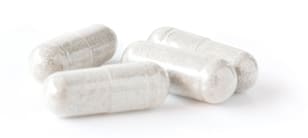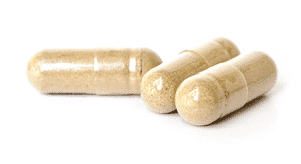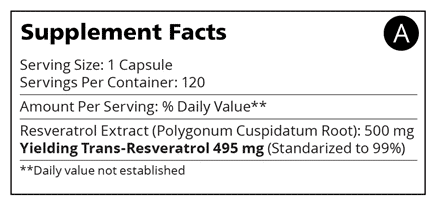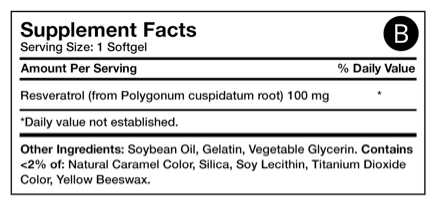RESVERATROL A TO Z
Answers to the most common questions about resveratrol
- What is resveratrol?
- What is trans-resveratrol isolate?
- What is “pure” resveratrol?
- Does Mega Resveratrol contain emodin?
- What are the sources of resveratrol?
- Why is Mega Resveratrol more expensive than other resveratrol?
- What is “micronized” resveratrol?
- Does resveratrol cause side effects?
- Will resveratrol interact with other medications?
- What is the recommended dosage?
- How should I take resveratrol?
- How should I store resveratrol capsules and powder?
- What is the stability of resveratrol?
- What is Resveratrol plus FruiteX-B?
- Do you ship with an ice pack?
- Do you ship to all countries?
- What is the cost of shipping?
- What is the return policy?
WHAT IS RESVERATROL?
Resveratrol is a type of polyphenol found in a variety of commonly eaten foods including grapes, Japanese knotweed (giant knotweed), berries, peanuts, dark chocolate, and tea. It first gained attention in the early nineties when the CBS show, 60-Minutes, aired a segment on “the French paradox” – investigating why French people, despite eating diets high in saturated fat, had lower rates of coronary heart disease than their American counterparts. The report concluded that higher consumption of red wine may play a pivotal role in lowering the incidence of coronary heart disease. Researchers pointed to resveratrol, found in grape skins, as the compound thought to prevent or delay coronary heart disease and many other health conditions. Back to top
WHAT IS TRANS-RESVERATROL ISOLATE?
Trans-resveratrol isolate is the end result of the process of purification where trans-resveratrol is separated from other substances in the plant. The initial part of the process extracts the trans-resveratrol from the plant to a purity of 98%. The final part of the process is the isolation, which purifies the product to almost 100%. Back to top
RESVERATROL STUDIES
- Cardiovascular
- Atherosclerosis (hardening of the arteries)
- Cancer
- Joint disease
- Alzheimer’s
- Liver
- Aging
- Cataract
- Macular Degeneration
- Lyme disease
- Anti-inflammatory
- Neurodegenerative diseases
- Parkinson’s
- Multiple sclerosis
- Cell damage
- Calorie restriction mimetic
WHAT IS “PURE” RESVERATROL?
Like many dietary supplements, all resveratrol products are not created equal. “Pure resveratrol” refers to the relative content of trans-resveratrol, the active ingredient and beneficial substance in resveratrol. Purification is the process of isolating trans-resveratrol from the rest of the plant and discarding the remaining impurities.
One clue to the purity of resveratrol is its physical appearance. Pure resveratrol powder derived from Japanese knotweed, is white or off-white in color, and (almost) odorless, while low-purity resveratrol is light brown or darker, and has a strong, distinctive odor. In general, the higher the purity, the lighter the color, however, lab testing has revealed that some companies add rice flour to a low-purity product in order to lighten it.


Because the FDA does not require purity values to be indicated on a product’s label, inferior products can be hard to spot. Beware of bargain pricing and misleading descriptors such as “Extra Strength,” “Super Potency,” “High Purity,” and “Maximum Strength.” Many brands with these claims contain low-purity resveratrol – between 20-50% – and while they may cost less per bottle, they require substantially higher doses to achieve the same effect.
With so many imposters on the market, what’s the best way to make an educated choice? Pay attention to the Supplement Facts label, which should indicate both the “total product” content and the “trans-resveratrol” content. By providing dual values, we can calculate the actual purity of the product in question. For example, a 50% pure product should be indicated on the label as “Resveratrol (Polygonum Cuspidatum Root): 500 mg yielding 250 mg Trans-resveratrol.” Or, “Standardized to 50% Trans-resveratrol.” If you suspect you’ve purchased a questionable product, ask the manufacturer for a COA (Certificate of Analysis) and/or a USA third-party lab testing certificate.


The Difference is in the Label
Can you spot the key differences in the Supplement Facts labels above? Label A (ours), offers full disclosure around product purity by providing both the “total resveratrol” and “trans-resveratrol” content, followed by a standardized percentage value. Meanwhile, the same information is noticeably absent from Label B. Again, when trans-resveratrol content goes undisclosed, it is impossible to establish purity. Back to top
DOES MEGA RESVERATROL CONTAIN EMODIN?
Because of the purity and the isolation process, Mega Resveratrol contains a trace of 0.01% emodin, which is considered to be zero emodin content. Back to top
WHAT ARE THE SOURCES OF RESVERATROL?
Resveratrol is derived from two primary sources: grapes and Japanese Knotweed (Polygonum Cuspidatum). You may have heard that grape resveratrol is of superior quality, but this is a widely-held myth. In truth, grapes contain a tiny amount of trans-resveratrol, making them a prohibitively expensive source. It takes about 250 kilograms of grape skins to produce one kilogram of resveratrol that yields only 5% trans-resveratrol. Knotweed, by contrast, grows in the wild and has higher native concentrations of trans-resveratrol. It can be harvested without the use of pesticides and stored at room temperature, while grapes must be kept frozen to preserve freshness.
Mega Resveratrol is sourced from Japanese Knotweed using environmentally friendly practices and is the most potent product on the market. Back to top
WHY IS MEGA RESVERATROL “MORE EXPENSIVE” THAN OTHER RESVERATROL?
Mega Resveratrol is NOT more expensive than other PURE and MICRONIZED products on the market. We offer more product (120 capsules, 500 mg, equals 60 grams of pure Resveratrol per bottle), which is double (or even quadruple) the quantity most other companies offer. We also offer a 60 capsules bottle and a 250 mg capsules. Despite what other companies claim, most resveratrol on the market is of low purity. The expensive process of purifying and isolating the product is what accounts for the difference in price between LOW and HIGH PURITY resveratrol.
In addition, encapsulating and manufacturing the product without excipients is a much more expensive process than encapsulating with excipients (inactive ingredients). Excipients are added mainly to facilitate the manufacturing process but offer no health benefits. In some cases, these added ingredients may produce an allergic reaction and can even be generally unsafe for consumption.
Unfortunately many companies add rice flour (and other fillers) to their product, which is legal, but since the FDA does not regulate or limits the amounts of these added excipients, companies are taking advantage of customers in two ways; they add white rice flour to low purity Resveratrol to brighten the color and make it look like a pure (white) Resveratrol. How much rice flour is added? No one knows. Customers are paying for a pure product, but don’t know how much active ingredient (Resveratrol) the product contains. Mega Resveratrol never adds excipients, so customers receive pure Resveratrol (or pure NMN) and nothing else. Furthermore, customers should never rely solely on the color of Resveratrol (or any other product) to determine the purity.
WHAT ARE EXCIPIENTS (inactive ingredients), WHY ARE THEY ADDED TO MOST PRODUCTS, AND WHY YOU SHOUKD BE CONCERNED?
WHAT IS “MICRONIZED” RESVERATROL?
Micronization is the process of reducing the size of a solid material. Some dietary supplements are water-soluble and their absorption rate in the body is higher than non-water-soluble supplements. Since resveratrol is non-water-soluble, the only way to increase its absorption and bio-availability is to reduce the size of the particle. The smaller the particle size, the higher its absorption rate. Mega Resveratrol’s average particle size is less than 2 µm (<0.002 mm), compared to 170 to 220 µm (0.17-0.22 mm) of standard resveratrol. Clinical studies have shown that micronizing the particle size increases the absorption rate by up to 1000%. Back to top
DOES RESVERATROL CAUSE SIDE EFFECTS?
Resveratrol has been widely used for years with no reported safety issues. A number of clinical studies have confirmed that pure trans-resveratrol is safe to consume in doses of up to 6,000 mg daily. Lower-purity resveratrol, on the other hand, may cause gastrointestinal side effects due to emodin, a chemical compound naturally found in Japanese knotweed and other plants, which can act as a laxative in sensitive individuals. Pure trans-resveratrol, like the kind found in our products, is emodin- and filler-free!
Resveratrol may enhance the effect of blood-thinning medications (e.g., Coumadin, aspirin, etc.) and increase the risk of bleeding. Allergic reactions to resveratrol are possible but very rare. Individuals with an allergic reaction to grapes, red wine, or polyphenols are advised against consuming resveratrol. When starting a resveratrol regimen, always start with the lowest appropriate dosage and increase over a few days. Back to top
WILL RESVERATROL INTERACT WITH OTHER MEDICATIONS?
Yes, since resveratrol is considered as a natural blood thinner it may interact with prescription blood thinner medications. Consult your health care provider before starting a resveratrol regimen. Back to top
WHAT IS THE RECOMMENDED DOSAGE?
Appropriate dosage will vary depending on the individual. Based on clinical trials, 500 to 1000 mg of trans-resveratrol is considered the minimum daily amount at which benefits can be detected. One Harvard study suggests that proper dosage was equal to 500 mg per 50 lbs of body weight, meaning that a person who weighs 150 pounds should take 1500 mg daily for optimal effects. Consider this a point of reference and, as with any new supplement, plan to consult your healthcare provider first. Back to top
HOW SHOULD I TAKE RESVERATROL?
Resveratrol is not water-soluble. In capsule form, take with a glass of water. In powder form, mix with a half-cup of your favorite yogurt.
Individuals who drink alcohol daily may add resveratrol powder to their daily drink (wine or alcoholic beverage). The higher the proof, the higher the dissolution of the powder. Back to top
HOW SHOULD I STORE RESVERATROL CAPSULES AND POWDER?
Open bottles (or jars) should be stored at room temperature in a dark, dry place. Unopened, sealed bottles or jars that are intended to be used over a period of months can be stored in the refrigerator. Back to top
WHAT IS THE STABILITY OF RESVERATROL?
Under normal conditions (room temperature) resveratrol shelf-life is a minimum of 2 years. Stability tests have shown that resveratrol did not deteriorate when exposed to temperatures of 110 F after two weeks. Back to top
WHAT IS RESVERATROL® PLUS FRUITEX-B®?
One of the products we offer on our website is Resveratrol and Calcium-Fructoborate (FruiteX-B®).
FruiteX-B® (Calcium Fructoborate) is a patented ingredient identical to the borate carbohydrate complex commonly found in legumes, fruits, vegetables, and certain beans. Low-dose, fully soluble, and vegan, FruiteX-B® is supported by over a decade of published research. In clinical studies, significant improvements have been shown in joint comfort with continued use of FruiteX-B® when studied over a long-term 90-day period of time.*
When combined, Resveratrol and FruiteX-B® support heart health. A recent clinical study has shown a 67% decrease in a commonly used marker of inflammation (C-reactive protein- strongly linked to heart disease and heart attacks).
Mega Resveratrol® + FruiteX-B® is 100% natural and cause no side-effects. The recommended dosage is 2 capsules, 1-2 times daily. (FruiteX-B® is manufactured in the USA by Future Ceuticals Inc.).
Consult your healthcare provider prior to starting the Resveratrol and Calcium Fructoborate regimen.
Recent Studies:
https://pubmed.ncbi.nlm.nih.gov/23153742/
https://link.springer.com/article/10.1007/s12011-015-0590-2
DO YOU SHIP WITH AN ICE PACK?
Although both resveratrol and NMN are stable at high temperatures, we will ship products in ice packs at the customer’s request, for a small additional charge. Back to top
DO YOU SHIP TO ALL COUNTRIES?
We ship to most countries. Back to top
WHAT IS THE COST OF SHIPPING?
Shipping to the USA is free. Shipping to other countries is typically $15-25 per order. See our Shipping & Return Policies page for details. Back to top
WHAT IS THE RETURN POLICY?
Please refer to our Shipping & Return Policies page for details. Back to top

